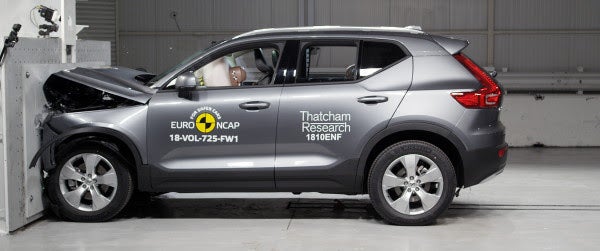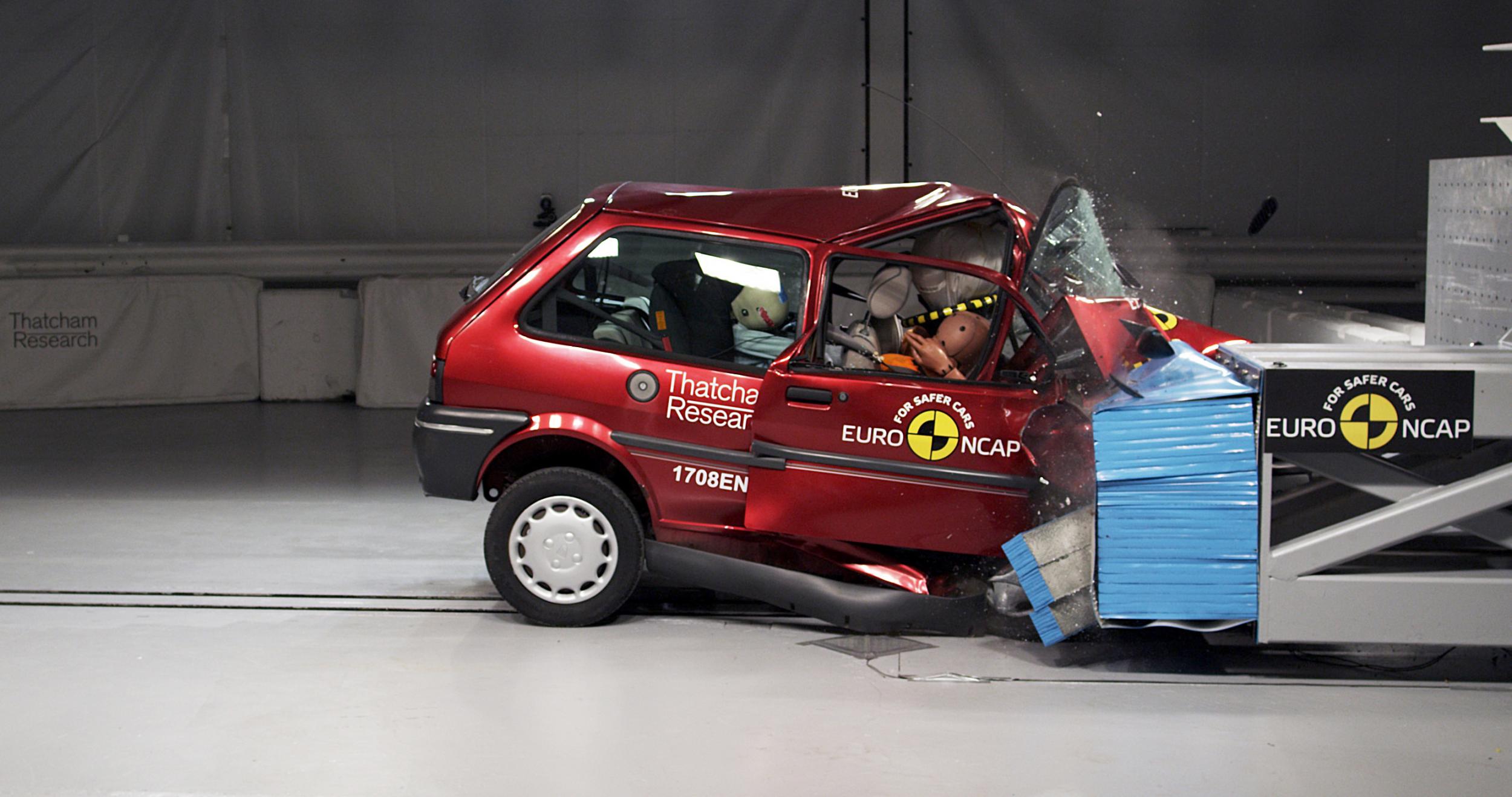Ford Focus and Volvo XC40 score high for safety
July’s tests of important new models are encouraging for all road users

Your support helps us to tell the story
This election is still a dead heat, according to most polls. In a fight with such wafer-thin margins, we need reporters on the ground talking to the people Trump and Harris are courting. Your support allows us to keep sending journalists to the story.
The Independent is trusted by 27 million Americans from across the entire political spectrum every month. Unlike many other quality news outlets, we choose not to lock you out of our reporting and analysis with paywalls. But quality journalism must still be paid for.
Help us keep bring these critical stories to light. Your support makes all the difference.
It is still true that Volvo build pretty safe cars – but they are hardly alone, which is excellent news for customers across the new car market.
According to the Thatcham Research centre, one of Europe’s leading car safety testing agencies, the new Volvo XC40 compact SUV and the best-selling new generation Ford Focus have both scored the maximum five-star Euro NCAP safety rating in the latest round of testing.
The Volvo does seem to have impressive “under the skin” safety features, with a 97 per cent mark for adult passenger protection, one of the highest that Thatcham has seen.
By comparison, the new Ford Focus scored 85 per cent for adult occupant safety, which helped it to its full five-star rating. However, Thatcham say that only one of the five cars released by Ford in 2017 achieved more than a three-star rating, the Fiesta being the sole product to reach the five-star grade.
Matthew Avery, Thatcham’s Director of Research, commented: “It’s refreshing that Ford has upped its safety game for a likely top 10 seller like the Focus. The one disappointment was seeing lost points for protection against whiplash – the most common injury sustained in impacts.”
Of the Volvo, he said: “This is yet another benchmark car from Volvo. The XC40 is built on Volvo’s new small vehicle platform, but there are no signs of compromise on safety, despite the challenges this segment presents to delivering optimal crash protection. Not only has the Volvo XC40 registered one of the highest adult occupant protection scores of the past three years, but it has done so in Euro NCAP’s toughest tests to date and all in a small package.”

Both Ford and Volvo are commended for their autonomous emergency braking (AEB) feature, which means that the car immediately senses an approaching collision and takes appropriate precautionary action. It is technology that is also fitted by an increasing number of makers. It should improve safety for pedestrians and cyclists. Thatcham has called for AEB to be fitted to all new cars and vans.
Thatcham has introduced some new tests this year, the most significant being a new “offset” collision test for autonomous braking systems, so that it can detect – accurately – where the corner of a vehicle will “clip” the corner of another.
“We can now assess a wider range of front to rear-end impact scenarios, for example those that occur while navigating a roundabout,” explained Avery. “In this situation, an early AEB system might assume that a car which is out of alignment will continue to move out of the way and is therefore not a collision threat. It’s a challenging scenario for any AEB system, but both the Ford Focus and Volvo XC40 showed strong performance in the new tests.”
A founder member of the international Research Council for Automobile Repairs (RCAR), Thatcham Research has also been a member of the European New Car Assessment Programme (Euro NCAP) since 2004.
Join our commenting forum
Join thought-provoking conversations, follow other Independent readers and see their replies
Comments